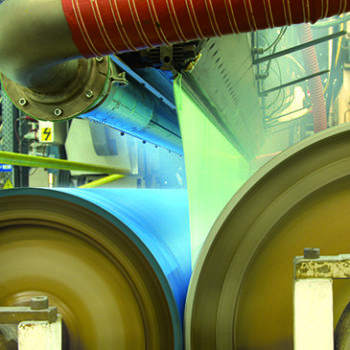Enterprise resource planning (ERP) software benefits companies in a variety of ways. Any organization can use one of these valuable platforms to reach a level of operational efficiency that can be difficult to achieve without it. However, for manufacturing companies, an ERP platform is a vital business component.
There are many ways that an ERP solution that can benefit a company involved in the production of goods. For example, the system allows decision-makers to monitor the effectiveness of employees working on the shop floor in real time. The data generated by the system will help leaders better understand the adjustments that would need to be made to help workers improve in their daily tasks, while at the same time increasing company output and making the organization more efficient at the same time.
However, there is another business area that is extremely important for manufacturing organizations to manage: the supply chain. Companies that produce finished products need to have certain components at the ready to accomplish these tasks. However, problems can occur when certain materials run out or haven’t been replenished as needed. This can lead to delays that will ultimately have a negative impact on the business itself. However, implementing an ERP software solution can mitigate this.
How an ERP solution can help address supply chain issues
There are several business areas related to supply chain management that ERP software can help with. One of the most important listed by The Logistics Business is materials management. With an ERP system in place, decision-makers overseeing production activity will be able to better assess current inventory levels, purchasing and accounts payable activity with suppliers. Each is important in its own right and having a system that can keep all of this information filed and sorted in a way that makes it easy to access and read is beneficial.
An ERP solution can also help manufacturing organizations better plan their production activities. The system will be able to ascertain which critical materials are in stock and those that need to be replenished. Having this information, a company can schedule their shop floor efforts based on the materials that already exist within the organization’s inventory. This will mitigate starting a manufacturing project and being unable to complete it because some of the required materials are either low or have completely run out.
Digital Supply Chain wrote that using an ERP solution to manage activities related to inventory and other critical production areas, increases intra-company collaboration and helps organizations become more innovative in their manufacturing activities. In addition, an ERP platform, once it has been implemented, will create a single, transparent system that improves both external and internal compliance.
Some of the examples of companies that have benefited from using an ERP system to manage production included an organization that increased its on-time delivery from 70 percent to 90 percent, will lowering the collection of excess and unused materials by $1.3 million.
Another organization was able to shorten its lead time to 10 days, down from 85. In addition, this company was also able to reduce the number of back orders by 90 percent.
The benefits of implementing ERP software are almost too numerous to list. However, improved supply chain management for manufacturing companies is something decision-makers working inside these companies should never overlook. The viability of the business depends on customer satisfaction and efficient production activities.
Adopting an ERP solution is a great way to accomplish both goals and companies should begin working with vendors to assess if their offerings will meet the requirements of a business.


 USA
USA
 United States
United States Indonesia
Indonesia Mexico
Mexico Australia
Australia United Kingdom
United Kingdom New Zealand
New Zealand Singapore
Singapore